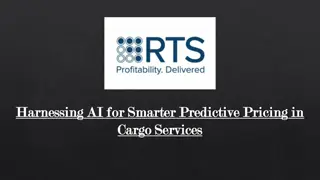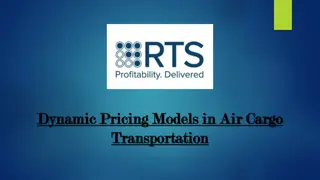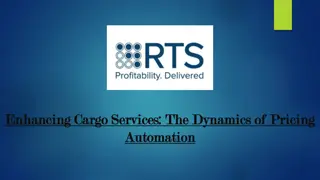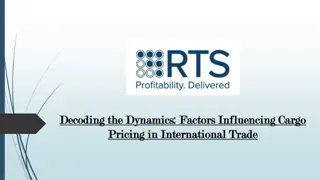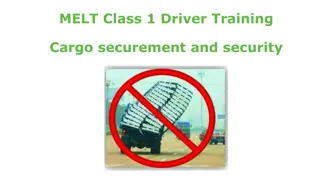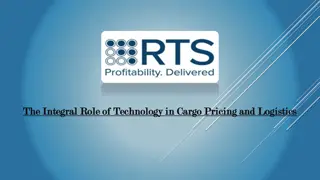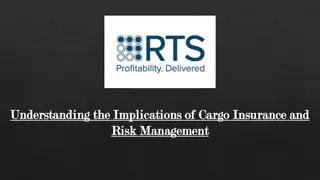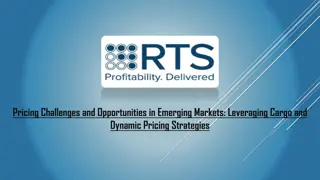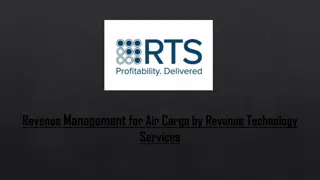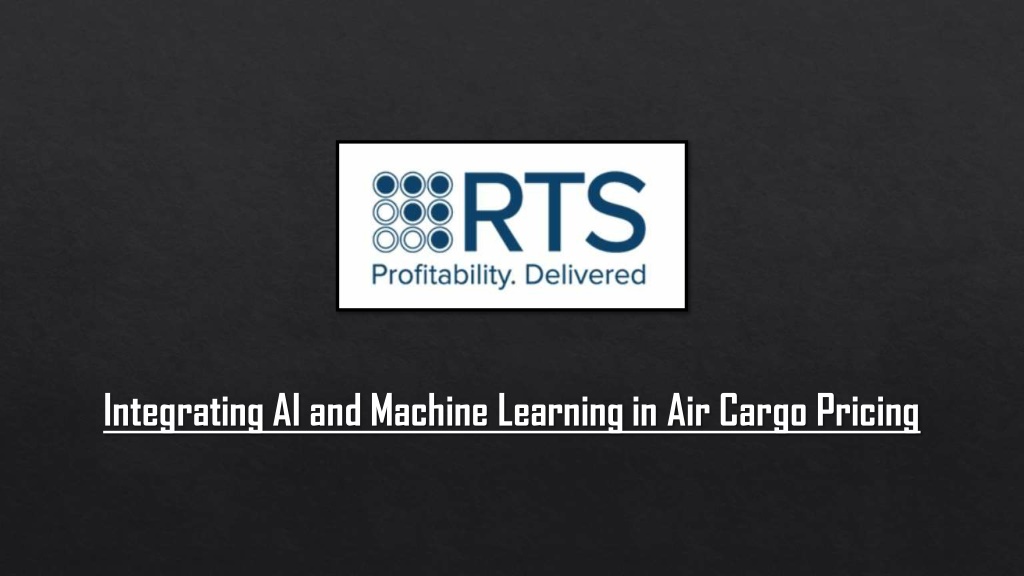
Integrating AI and Machine Learning in Air Cargo Pricing (1)
The air cargo industry is undergoing a significant transformation, driven by advancements in technology. At the forefront of this revolution are Artificial Intelligence (AI) and Machine Learning (ML), which are reshaping traditional practices and ena
Download Presentation

Please find below an Image/Link to download the presentation.
The content on the website is provided AS IS for your information and personal use only. It may not be sold, licensed, or shared on other websites without obtaining consent from the author. Download presentation by click this link. If you encounter any issues during the download, it is possible that the publisher has removed the file from their server.
E N D
Presentation Transcript
The air cargo industry is undergoing a significant transformation, driven by advancements in technology. At the forefront of this revolution are Artificial Intelligence (AI) and Machine Learning (ML), which are reshaping traditional practices and enabling more efficient, accurate, and dynamic pricingmodels. Revenue Technology Services (RTS) is at the helm of this innovation, leveraging AI and ML to enhance air cargo pricingstrategies, ensuring better profitability and customer satisfaction. The Need for AI and ML in Air Cargo Pricing The air cargo sector is characterized by its complexity and volatility. Fluctuating demand, varying shipment sizes, and diverse routes require a robust pricing mechanism that can adapt in real-time. Traditional pricing methods, often based on historical data and manual adjustments, struggle to keep pace with the dynamic market conditions. Here, AI and ML emerge as game-changers, offering the ability to analyze vast amounts of data, identify patterns, and predict future trends with remarkable accuracy.
Benefits of AI and ML Integration 1.Dynamic Pricing Optimization: AI-powered systems can dynamically adjust prices based on real-time market conditions. By analyzing factors such as demand fluctuations, competitor pricing, and seasonal trends, AI can set optimal prices that maximize revenue while maintaining competitiveness. 2.Enhanced Demand Forecasting: ML algorithms excel at identifying patterns and predicting future demand. By processing historical data alongside external variables like economic indicators and weather conditions, ML models can provide more accurate demand forecasts. This ensures better capacity utilization and minimizes instances of overbooking or underutilization. 3.Personalized Pricing Strategies: AI enables the creation of personalized pricing models tailored to individual customer segments. By analyzing customer behavior, preferences, and purchasing history, AI can offer customized pricing solutions that enhance customer satisfaction and loyalty. 4.Operational Efficiency: Integrating AI and ML in pricing automates many of the manual processes, reducing the likelihood of human error and freeing up valuable time for strategic decision-making. This leads to increased operational efficiency and a more agile response to market changes. Competitive Advantage: In a highly competitive market, the ability to swiftly adapt to market conditions is crucial. AI and ML provide the tools to anticipate market trends and respond proactively, giving businesses a competitive edge.
RTS's Role in AI and ML Integration Revenue Technology Services is pioneering the integration of AI and ML in air cargo pricing. By developing sophisticated algorithms and leveraging cutting-edge technology, RTS enables airlines to implement dynamic pricing strategies that are both data-driven and customer-centric. RTS's solutions are designed to seamlessly integrate with existing systems, ensuring a smooth transition and immediate benefits. Their AI-driven platforms analyze real-time data from various sources, providing actionable insights and enabling airlines to make informed pricing decisions. Conclusion The integration of AI and Machine Learning in air cargo pricingis not just a trend but a necessity for staying competitive in a rapidly evolving market. Revenue Technology Services is leading the way, offering innovative solutions that transform traditional pricing models into dynamic, efficient, and customer-focused systems. As the air cargo industry continues to embrace these technologies, the future promises enhanced profitability, improved customer satisfaction, and a more resilient operational framework. Embracing AI and ML is the key to unlocking the full potential of air cargo pricing.

